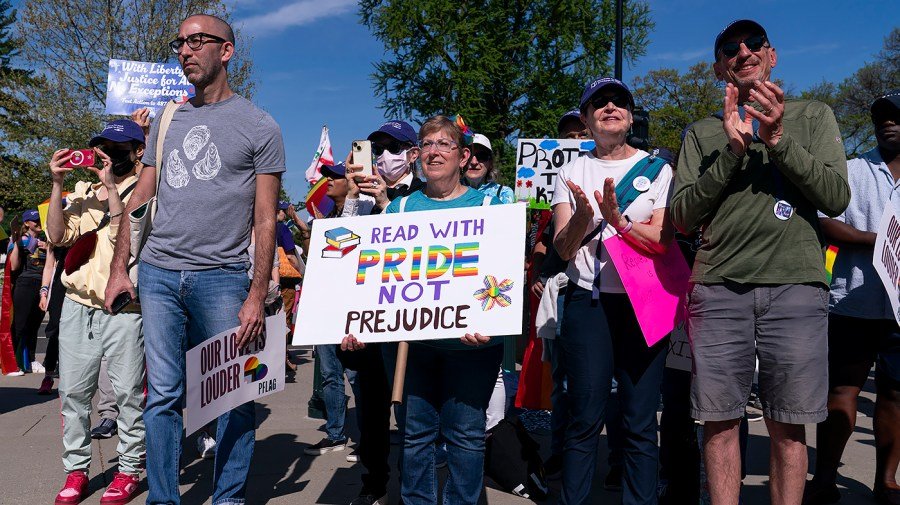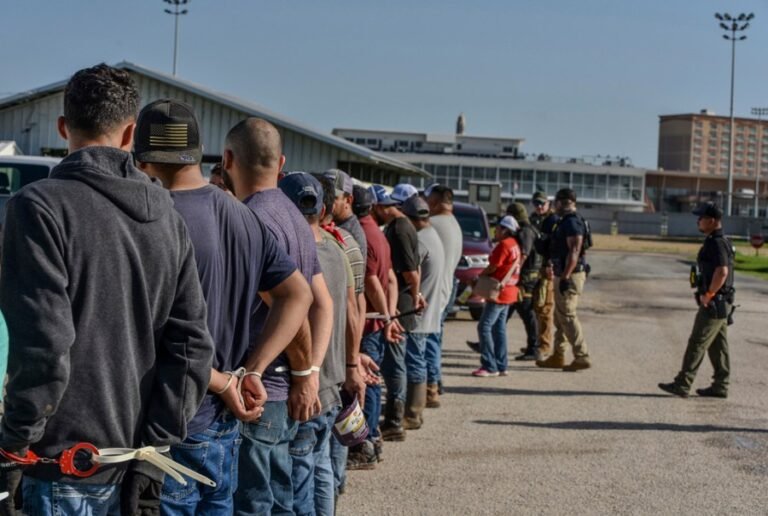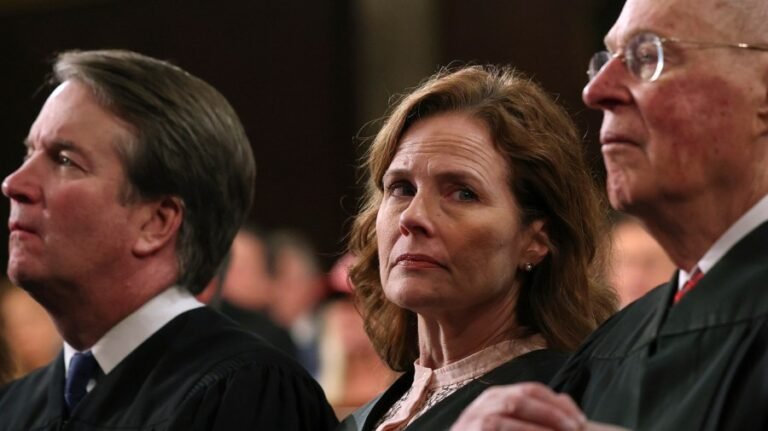
More than a dozen children’s book authors and illustrators whose work was named in a Supreme Court case said Friday’s ruling, which sided with a group of religious parents who objected to the LGBTQ storybooks, will harm LGBTQ children and families.
The high court ruled 6-3 along ideological lines to send the case, Mahmoud v. Taylor, back to a lower court for a final decision on whether Montgomery County, Md., must provide an opt-out option for parents. Justice Samuel Alito wrote for the majority that the parents who brought the case before the court are likely to succeed in arguing that the district’s lack of such an option substantially burdens their constitutional right to freely exercise their religion.
Authors and illustrators of the nine titles at the center of the case wrote Friday in a joint statement that the court’s decision “threatens students’ access to diverse books and undermines teachers’ efforts to create safe, inclusive classrooms.”
“To treat children’s books about LGBTQ+ characters differently than similar books about non-LGBTQ+ characters is discriminatory and harmful. This decision will inevitably lead to an increasingly hostile climate for LGBTQ+ students and families, and create a less welcoming environment for all students,” they wrote in the statement released by PEN America, a nonprofit free speech group.
“We created our books for all children. We believe young people need to see themselves and families like theirs in the books they read; this is especially true for LGBTQ+ children and LGBTQ+ families,” the authors and illustrators wrote. “And all children need to learn how to share their classrooms and communities with people different from themselves. Books can help them understand one another and learn to treat each other with acceptance, kindness and respect.”
The authors’ response echoes concerns voiced by the Supreme Court’s three Democratic-appointed justices in a fiery dissent from the majority opinion Friday.
Justice Sonia Sotomayor, joined by Justices Elena Kagan and Ketanji Brown Jackson, wrote that the ruling would burden schools and harm young students’ learning, development and “opportunity to practice living in our multicultural society.”
“Exposing students to the ‘message’ that LGBTQ people exist, and that their loved ones may celebrate their marriages and life events, the majority says, is enough to trigger the most demanding form of judicial scrutiny,” Sotomayor wrote in her dissent, which she also read aloud from the bench. “Given the great diversity of religious beliefs in this country, countless interactions that occur every day in public schools might expose children to messages that conflict with a parent’s religious beliefs. If that is sufficient to trigger strict scrutiny, then little is not.”
In April, the Supreme Court dissected the children’s books, including “Uncle Bobby’s Wedding,” “Pride Puppy!” and “Love, Violet,” across more than two hours of arguments.
“We could have a book club and have a debate about how Uncle Bobby’s marriage should be understood,” Alito said at one point. The book, he said, does not simply say that the title character is marrying his boyfriend, Jamie: “It expresses the idea subtly, but it expresses the idea this is a good thing.”
Sarah S. Brannen, the book’s author and illustrator, told The Hill following oral arguments last spring that she found Alito’s questioning disingenuous.
“He had a point he wanted to make,” she said.
In another instance, Justice Neil Gorsuch, who sided with Alito’s majority opinion Friday, claimed during oral arguments that “Pride Puppy!” by Robin Stevenson, a book recommended for readers aged 3-5, includes a character who is a sex worker — “It’s a drag queen,” Justice Amy Coney Barrett corrected him — and makes inappropriate mentions of leather and bondage.
Andrew Wooldridge, Stevenson’s publisher, told The Hill in April that the picture book includes no such storyline and Gorsuch’s characterization of the title was “a misrepresentation.”
“The book has very few words and would be a quick read to confirm these things,” Wooldridge said.


